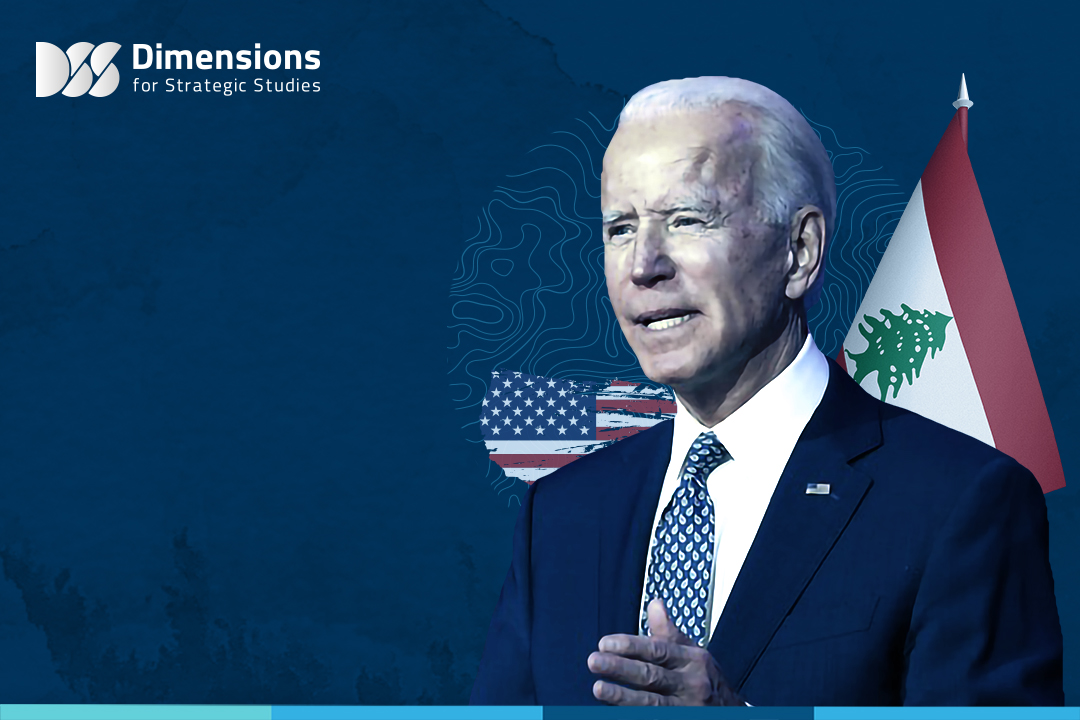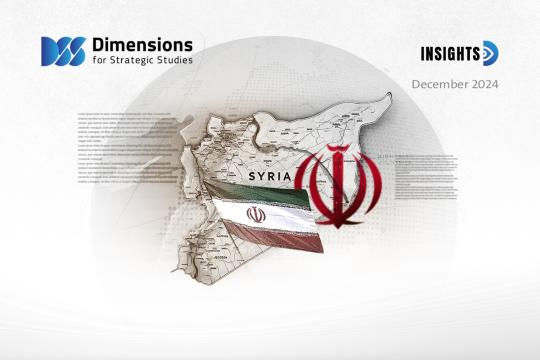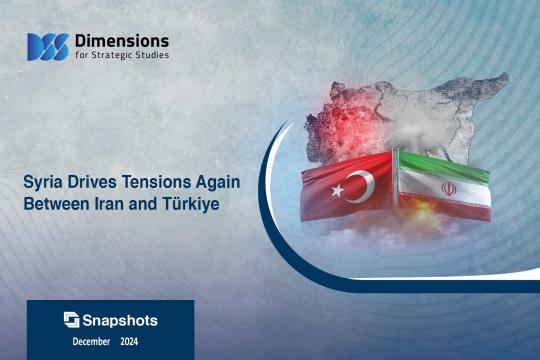
Lebanon during the administration of Joe Biden
2021-01-222323 view
It is not possible to talk about the Middle East without taking into consideration the tough winds of Washington, which are not steady as some highly knowledgeable experts in American politics like to consider them. Some- including those in Washington- believe that the foreign policy of the United States of America towards the Middle East will not change during the term of President-elect Joe Biden. US foreign policy is primarily based on the American commitment to Israel's security and supremacy. Moreover; the scene cannot be quite clear without taking into account the recent Arab-Israeli normalization agreements, that would have a tremendous impact on the region and add a new important geopolitical element to the whole scene.
Before reviewing a few points in the American foreign policy that could affect the Lebanese interior, we should draw attention to the terrible internal differences between the Lebanese parties, that are still delaying the formation of a new government to face the crises afflicting Lebanon. Of course, there is no direct connection between the US administration and the obstruction of the government formation file; as Lebanon is not at the center of the US administration's interest at present. After the Biden's victory; however, there may be no clear or firm American objection to the participation of "Hezbollah" in the government, which will facilitate the process of its formation.
The most prominent effects of US foreign policy on Lebanon:
1- Border Demarcation Negotiations between Lebanon and Israel:
Washington will continue to exert its utmost efforts to complete the border démarcation negotiations between the two countries. At such a point, the international pressures on the exploration companies will be removed; and Lebanon will be allowed to benefit from its natural resources. The demarcation agreement will be considered an achievement for US foreign policy. Recently, Lebanon and Israel entered into indirect negotiations to demarcate the maritime borders between them, under UN auspices and American mediation. The background of the dispute is an area rich in gas and oil in the Mediterranean Sea. Ultimately, Lebanon will find itself before the choice between oil or sanctions.
2- Sanctions Policy:
The reflection of Biden's victory on the Lebanese arena will be slight. The policy of economic sanctions is palatable to Washington. And it will continue with it; The situation will not differ from what it was during the era of former President Donald Trump. Of course, the blockage of aid on the country, its citizens and its parties will continue in order to subjugate everyone. As a reminder, the sanctions against Hezbollah began during the era of former US President Barack Obama; and Biden was his deputy at the time and continued during Trump’s era. This indicates that the Republican and Democratic parties favor this policy.
During the past months, the US Treasury imposed sanctions on individuals and institutions accused of their association with and support for the "Hezbollah" group. They affected the former Lebanese Finance Minister Ali Hassan Khalil and the former Minister of Works Youssef Fenianos. Sanctions even reached the main Maronite partner of Hezbollah, Minister Gibran Bassil; which suggests that the American hammer will not refrain from hitting any head.
3- Economic situation and the collapse of the currency
Economic experts believe that there is no direct correlation between the outcome of the US elections and the Lebanese economic situation; especially since all indications say that the Biden administration's approach will not fundamentally differ from that of his stubborn predecessor regarding the Lebanese file. Easing the sanctions against Hezbollah and some figures close to it may not affect the Lebanese economy directly. Only combating internal corruption, easing political tension, and speeding up the birth of a government trusted by the international community to conduct negotiations with the International Monetary Fund, will have a positive impact on the economy.
Since last October, following the outbreak of popular protests in Beirut, and the resignation of the government; the value of the Lebanese pound has dropped to a new low against the US dollar; which was reflected in the prices of essential consumer commodities, and the deteriorating value of employees’ salaries in all sectors. It is known that the Trump administration had never vetoed providing aid to Lebanon via the IMF; and this will not change during the period of Biden administration. The U.S. Biden-led administration, like the Europeans, require real and serious reforms to be implemented in the structure of the Lebanese economy. It is no longer internationally acceptable for mafias and militias to control the state and its institutions or to divert any international support for their henchmen.
4- Fighting corruption:
Those close to the political forces, who are placed under the microscope of the Magnitsky Act, which is concerned with combating corruption, are betting that US pressure in this direction will decline with the change of the US administration. They believe that the first effect of Biden's accession to the US presidency will be to stop the current law, and thus stop the prosecution of the names proposed by the US Treasury under the banner of corruption. This is mere misconception, firstly because the Magnitsky Act was passed with bipartisan approval, and secondly because Biden's priorities in his relations with foreign countries will be based on the extent to which these countries fight corruption in their institutions for the benefit of their people. In late March 2020, under the headline “Saving U.S. Foreign Policy After Trump,” Biden wrote in Foreign Affairs, “From Hong Kong to Sudan, from Chile to Lebanon; people remind us once again of a shared yearning for honest governance and global loathing of corruption...".
Biden linked US aid to these countries - and to those with whom he will deal - to their fighting corruption and promoting human rights. In the same article, Biden pledged to issue a presidential policy directive that defines anti-corruption as a core national security interest, and a democratic responsibility. He said: «I will lead efforts internationally to bring transparency to the global financial system, seize stolen assets, and make it more difficult for leaders who steal from their people to hide behind anonymous front companies". I
5- Rapprochement with Iran and a return to a new nuclear agreement:
At present, the new Biden administration doesn’t seem to have any intention to ease the sanctions or restrictions imposed on Iran and its allies, even if the United States rejoins the nuclear agreement with Tehran, knowing that the return of the Democrats to the nuclear agreement will be under new conditions that will, of course, include Iran's commitment to curb its arms in the region, especially its support for Hezbollah. A preliminary reading of Biden's positions on the Iranian nuclear agreement shows that there is a difference of opinion between President-elect Biden and Obama. Biden believes that the nuclear agreement with Iran should encompass ballistic missiles of which Hezbollah owns some. Moreover, and any new agreement with Tehran must provide for addressing the situation of the Iranian-linked armed groups present in the Middle East.
Last September, Biden wrote in a CNN op-ed: « Before Trump, years passed without a militia missile attack on American facilities in Iraq; now, this is happening regularly. And instead of restoring deterrence, Trump encouraged Iran ». In short, many consider that Biden will start his policy in the Middle East and in Lebanon, from the point where Trump ended, and not from the point at which Obama ended his reign; meaning that Biden will not offer Obama's luxury neither to the Iranians nor to their allies, he is simply a very expert in the Middle East. Perhaps he is a copy of Trump in his policy towards Iran, but with the high diplomacy that Democratic presidents have always enjoyed. As for Hezbollah weapons, it is difficult to see a change in the American position on this issue; because it is one of the constant matters regarding Washington's relationship with Tel Aviv and the protection of its interests.
Conclusion:
It can be asserted that no one wants Lebanon to collapse. Neither Europe nor the United States want that regardless of the increase or decrease of sanctions. If it collapses (with its minorities and refugees), it will become a great burden on the region and on Europe. Based on this perspective, we cannot expect war or total chaos in Lebanon. It is not in the Western interest for unrestrained chaos to take place in Lebanon due to the growing Iranian influence; i. e. Hezbollah’s projected strength in several regional capitals.
As for the prosperity following a potential comprehensive agreement that includes the Gulf, Iran and Turkey; in fact, Lebanon is not a priority on the American agenda, nor is the Lebanese file going to be on the president's agenda in his first year in office. Moreover, the United States of America suffers from many internal problems and a massive internal division; therefore the president needs to focus on internal affairs in an attempt to reduce the damages of the pandemic to the American economy, and the consequences of Trumpism emerging in the United States; which threatens to be a bad omen on the foundations of American federalism.
Perhaps linking many local files to US elections is after all a misconception. And it is a kind of a Lebanese superiority complex that makes some Lebanese think that they are the center of the universe. Lebanese problems are internal ones, and solutions should also be internal. Without doing that Lebanon will get no aid. However, such a solution faces an even greater dilemma, which is for the Lebanese parties to take a step back and become internal parties!





